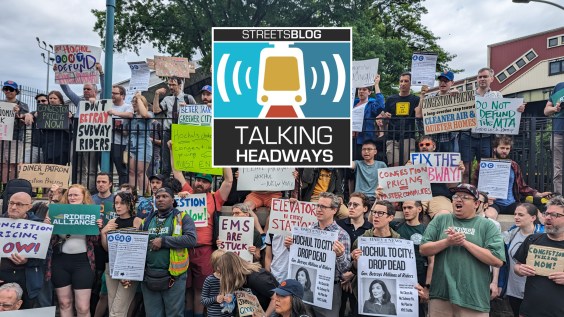How many times have you heard this line: Young people prefer urban living.
Of course, everyone acknowledges, this isn’t a universal preference. But a clear generational shift away from suburban lifestyles is the phenomena on which many of our discussions about urbanism are premised.
However, while young people may be a driving force in demanding vibrant urban environments, they aren’t necessarily in the driver’s seat when it comes to the important policy decisions that continue to shape metro areas, often at the expense of cities.

Mayor Cory Booker's success in redeveloping Newark, New Jersey, typifies of the brand of post-Boomer urban leadership that may be necessary to truly rebuild cities, Aaron Renn argues. Photo: Corybooker.com
Alex Ihnen at NextSTL articulated this generational tension last month in a blog post after Census figures showed the St. Louis had experienced yet another precipitous population decline: “When will the ‘old guard’ who have overseen this exodus stop cutting ribbons and turning dirt with a smile and silver shovel and simply get out of the way?”
Aaron Renn at the Urbanophile has given this dynamic some thought. In his latest post, Renn wonders whether a turnover in generational power will be necessary before urban areas can regain their primacy in American life:
Gen-X and the Millennials have a much more optimistic and positive views of urban areas than baby boomers and previous generations. I think this results from the rupture that those earlier generations experienced when our urban cores declined. If you read a newspaper interview of someone in that age bracket, you always hear the stories about the wonderful things they did in the city when they were younger. It was the land of good factory jobs, the downtown department store where their mothers took them in white gloves for tea, of the tidy neighborhoods, the long standing institutions and rituals – now all lost, virtually all of it. Unsurprisingly, this has turned a lot of people bitter. Many people saw everything they held dear in their communities destroyed, and they were powerless to stop it.
For people about my age or younger, it’s a very different story. None of us knew any of those things. Our experience is totally different. We’ve basically never known a city that wasn’t lost. Gen-X, which Jim Russell views as the heartland of Rust Belt Chic, is a generation defined by alienation, so the alienated urban core suits our temperament perfectly. The Millennials of course have a very different attitude towards cities.
I don’t see any signs of the older generations getting through the grieving process and moving on. This makes me think that for us to fully embrace a true urban policy, even in city government itself, it is going to take generational turnover. The baby boomers are already starting to age, but they’ll be with us a lot longer. Alas, they have historically been the most suburban generation, and not shy about imposing their values, so I suspect we’ll be dealing with that legacy for a while. Still, as time goes on, we’ll have more and more people seeing the city with fresh eyes, and only knowing it when there’s reason for hope and optimism. That by itself will be a building force for change and new directions over time, until the true changing of the guard arrives.
Elsewhere on the Network today: As spring approaches Utility Cycling shares some tips for staying dry while cycling in the rain. Rebuilding Place in the Urban Space imagines how a modern streetcar will transform D.C.’s H Street. And Say Yes to the Honolulu Rail System says the average local transit rider saves $11,000 annually over a driver.





